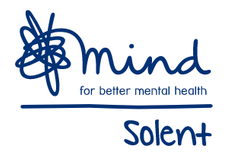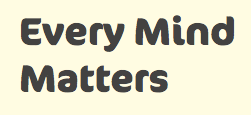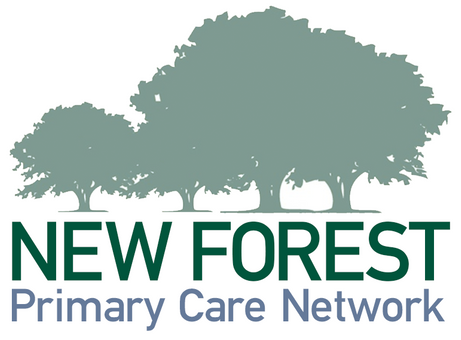Mental Health & Wellbeing
Looking After Your Mental Wellbeing
It is well known the importance of looking after our mental as well as physical health but there are times in life when this might feel easier than others.
There are many different tools that can help with self care and looking after your own wellbeing. Sometimes it is also important to reach out and seek advice, help and support from other professionals, such as your GP. This might be the case if you've tried doing the things that normally make you feel better, or if the way you are feeling is impacting your ability to get through your daily activities, including (but not limited to):
- Anxiety
- Depression
- Bereavement and Grief
- Anger management
- Body dysmorphia
- Eating Disorders
Areas to Consider:
There is evidence that the different factors below can improve wellbeing - we hope you can explore some of the self help resources underneath and see what might work for you.
1) Talking Therapies (see below)
2) Mindfulness techniques and stress reduction
3) Physical Activity: move more, be less sedentary
4) Improving Sleep
5) Improving Nutrition
6) Reducing or avoiding alcohol - it acts as a stimulant and then a depressant, as well as disturbing your sleep architecture.
7) Sunlight and Vit D supplements
8) Cold water emersion/open water swimming
9) Connecting or re-connecting with your social network
10) Reducing social media and sometimes news in general at times of heightened anxiety
11) Breathing exercises (see below)
Check out the 'Resources:Self Help' section below for more details.
Talking Therapies: Self Referral
You can access the free NHS service of psychological therapies in the New Forest from “italk” by self referral. There will be other options available too through your surgery or privately (see more resources page)
CALL iTalk - 023 8038 3920 OR EMAIL: info@italk.org.uk
It is a service to help people suffering from common mental health problems including depression, anxiety and stress, for people over the age of 16yrs registered with a Hampshire GP. There are many different treatment options available, as well as workshops.
The main therapy offered is Cognitive Behavioural Therapy (CBT). This is a talking therapy which looks at thoughts, feelings and behaviours and teaches coping strategies and other ways to manage how you are currently feeling. Italk offers employment support to its patients when they are struggling at work because of mental health problems or have had their mental health problems triggered by work-related stress.
Resources: Self Help
Mindfulness and Meditation Resources
Apps:
Books:
Mindfulness: a practical guide to finding peace in a frantic world. Mark Williams and Danny Penman.
Associated meditation audio via Soundcloud
Websites:
Exercise: Move more, Sit less
Dr Mike Evans 23 and 1/2 hours: What is the single best thing we can do for our health?
Feel Better Live More Podcast: Physical actviity and mental health
Sleep: See the separate page on sleep
Nurition:
Eat ‘real food’, avoid processed foods, lower sugary foods and starchy carbohydrates. Include essential 'healthy' natural fats. Our lower carbohydrate page gives some helpful information on different aspects of healthy eating and drinking. There are links to some alternative switches too.
Reducing Alcohol
Feel Better, Live More Podcast: The surprising benefits from reducing alcohol
Sunlight and Vitamin D: Get some natural sunlight in the day and fresh air - these are important for your mental health and sleep patterns. It is also advised to take Vitamin D supplementation as you may have been indoors more than usual this year. The current recommended supplement is 10 micrograms (400 IU) of vitamin D a day between October and early March to help keep your immune system, bones and muscles healthy, although many people suggest taking all year round.
Cold Water Immersion/Open Water Swimming: See separate page
Social Network but limit social media: Reach out to a friend or family member, either face to face where possible, or remotely.
Feel Better, Live More Podcast:
How social media could be making you ill.
Why spending time with your friends is more important than you think
Breathing Exercises: See Dr Mavro's Breathing Exercises Sheet
General wellbeing Resources:
Podcast Examples:
Rangan Chaterjee. Feel Better, Live More.
Dan Harris: Ten Percent Happier
Books:
Website:
This is an NHS website with lots of useful information about mental health problems and links to self help information. Click on “Topics” then “Mental Health” in the drop down list and then click on the relevant topic.
Help in a Crisis
If you or someone you know are feeling in a crisis or desperate for help, these services are available.
Click on the links for more information:
Free, confidential 24/7 text messaging support service for anyone struggling
Suicide prevention resource if you are having thoughts of suicide or concerned that someone else may be considering suicide
Stop Domestic Abuse supports and protects victims and survivors of domestic abuse
offer a wide range of specialist therapeutic, support & prevention services to anyone at risk from or affected by domestic abuse, sexual violence/abuse or other forms of interpersonal harm
Self Referral
There are many local resources that can help. Please click on the links below. Further sites can be found on the 'More Resources' page'
Solent Mind: Hampshire's Mental Health Charity Click Here
Italk: Improving Access To Psychological Therapies (IAPT) for Hampshire. A partnership between Solent Mind and Southern Health Foundation Trust. Click Here.
hART (Hampshire Art for Recreation and Therapy): exists to offer creative therapeutic and recreational activities to support mental health, wellbeing and wider social issues in people of all ages and abilities. For more information click on the logo above or here to self-refer.
Every Mind Matters : Includes support on COVID and wellbeing. Click Here.
Dr Rangan Chaterjee (GP) talks about everyday changes to help us all manage stress, which can impact our mental and physical health.
Dr Rangan Chaterjee (GP) talks about how you can still feel in control despie everything that is going on outside (Nov 2020)








